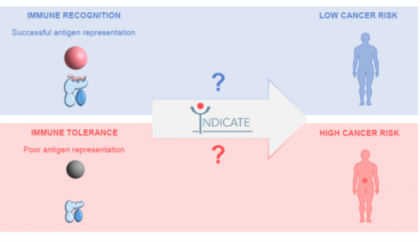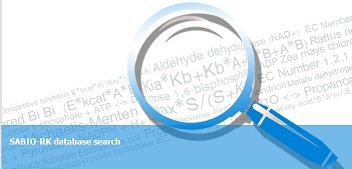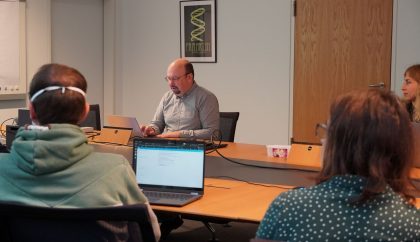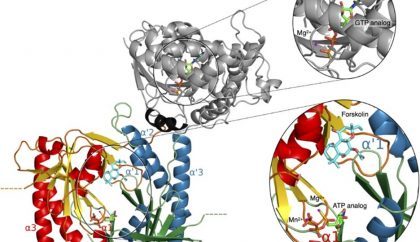
European Research: Biodiversity computing in the “hotspot” Crete
Bioinformatician Alexandros Stamatakis (HITS Heidelberg and KIT Karlsruhe) will receive funding of 2.4 million euros from the European Commission for an ERA …

New initiative to INDICATE cancer risks
Scientists from the Heidelberg Institute for Theoretical Studies (HITS), the German Cancer Research Center (DKFZ), the Heidelberg University Hospital and Heidelberg …

SABIO-RK understands EnzymeML
In the last years, the SDBV group collaborated with partners from Germany, the U.S. and the UK on the development …

Neural networks and computational chemistry
On 26 September 2022, Olexandr Isayev (Carnegie Mellon University, USA) visited HITS and SIMPLAIX and gave a joint HITS/SIMPLAIX (hybrid) talk on “…

Integrative data-intensive research for better drug design
The 23rd EuroQSAR Symposium in Heidelberg, Germany will focus on “Integrative Data-Intensive Approaches to Drug Design” and be attended by about 300 …

Multiscale simulations unveil molecular mechanisms that shape brain plasticity
New publication on multiscale molecular simulations to investigate adenylyl cyclase-based signaling in the brain, together with colleagues collaborating in the Human …

Integrative data-intensive approaches to drug design
The 23rd EuroQSAR Symposium will take place in Heidelberg, chaired by HITS group leader Rebecca Wade. Deadline for abstract submission: 4 August 2022 …

The invisible needle in a stellar haystack
An international research team with participation of HITS discovered a “dormant” black hole in a binary-star system outside our galaxy. These …

Massive stars, black holes and binaries
SET group at HITS organized the first presence meeting of VFTS & Friends It all started with an “ESO Large Programme”: …

Jupiter – a heavy metal planet?
An international team of astronomers, among Michaël Bazot from the “Theory and Observations of Stars” (TOS) group at HITS, has …